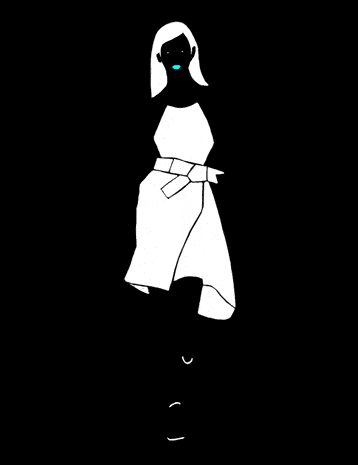Xtreme Vogue London Desk: Sarah Marshal
It took five years to develop the new game, and a team that eventually swelled to some 300 people. As director, it was Fujibayashi’s job to set the vision and manage all the teams. Aonuma provided oversight and kept a close eye on quality control, playing prototypes as they came in and providing feedback. Asked if they ever had a major argument, Aonuma says, “I think we probably would get in fights if it was just the two of us working on this. But thankfully, we are surrounded by a core team of members, and anytime there’s an important decision to make, we talk about it as a group. So, even if I raise my voice and have a strong point to make, it becomes dissipated among the group that we have.”
Once the group agreed that giving Link the ability to combine objects would be key to the new game, they started experimenting with the concept, not unlike the way a composer creates variations on a theme. (Aonuma famously plays percussion and leads an orchestra of Nintendo employees called the Wind Wakers.) They named the new ability Ultrahand, a nod to a pre-digital Nintendo toy from the ’60s, whose success helped keep the company afloat at the time. They gave Link the power to not only build rafts and planes and cannons, but also enhance his weapons and shields by fusing them with objects he picks up along the way. Eventually, a backstory was formulated, in which Link acquires a bionic arm with special powers from a mysterious benefactor. Ultrahand!
For those versed in film and TV production, it’s a little hard to imagine the complexity involved in creating such vast, immersive games. Players could easily spend 100 hours on a single playthrough of BOTW, which takes place in a world, Hyrule, that’s roughly equivalent in size to Manhattan Island. Tears of the Kingdom’s universe is even bigger. Again, without materially changing the original development environment, the team radically expanded the area of exploration by adding new realms in the sky and underground. In doing so, they drew lessons from their own history. In Skyward Sword, Link could fly among sky islands as well as dive down to the ground, but he could only descend at a few specific points. As a result, the game tended to feel too scripted and linear.
“Going back to Skyward Sword, there were limitations in hardware, so we weren’t able to accomplish what we can now do with the Switch,” says Aonuma. “Now there’s the sky, the surface, and the depths. And being able to dive through that and traverse a world that’s not only horizontally connected in a single world, but vertically connected as well, and being able to bring to fruition that sense of freedom when you’re diving into that—that’s something that we wanted to do.”
In one sense, these games are wildly innovative. Playing them, you can imagine why Mark Zuckerberg felt compelled to bet the farm on the metaverse. This is a virtual world you can absolutely get sucked into. Seen from another angle, however, these massive, long-gestating console games, built for a single player on a single console and handcrafted by a team of full-time employees, feel like something of an endangered species. There’s the rise of online games like Roblox, Minecraft, and Fortnite on one side, and a world of addictive little mobile apps on the other. And who knows how large language models like ChatGPT will change things? (If they livened up the wooden and repetitive dialogue of Zelda’s nonplaying characters, though, that would not be such a loss.)
For years, investors have been pressing Nintendo to diversify its revenue away from its console business and build strength in mobile gaming, movies, and in-person attractions. In response, the company tends to move slowly but deliberately. It held back on mobile games, and then suddenly collaborated on the release of Pokémon Go, one of the most popular mobile games of all time. It resisted calls to exploit its IP in Hollywood, still stung, perhaps, by the fiasco of 1993’s Super Mario Bros. movie. Then, in April, it put out a new Mario movie that made more than a billion dollars in just less than a month.


